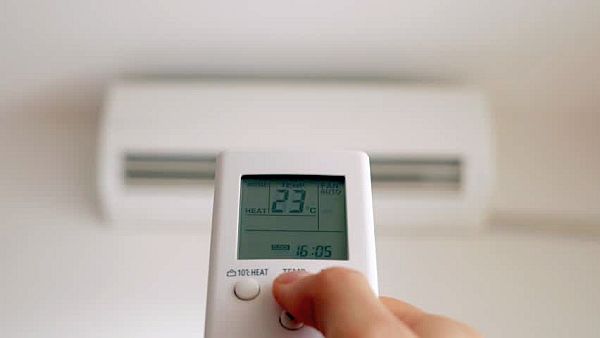Puerto Vallarta, Mexico - Air conditioners are very convenient devices, especially when temperatures get ridiculously high. When it gets unbearably hot and humid, there is only so much you can do about it, since the removal of clothes has its limits.
A good air conditioning system comes in really handy, as it keeps the air in your home or office cool, and makes summer in the tropics a lot more comfortable. But many people have no idea how to use in the most efficient way. For instance, very few know how to use the dry mode function that comes on most air conditioners nowadays.
What Exactly is Dry Mode?
Dry mode is often compared and confused with the cool mode. To some extent they do not feel different. Nonetheless, they are very different in terms of function and the result - even the remote control will tell you. On the remote, the dry mode is shown by a water drop symbol and the cool mode symbol is frequently a snow flake.
The main point of using dry mode is to reduce the humidity in a room. As you probably know, an increase in humidity translates into an increase in temperature. When it's humid, temperatures, even those that are relatively low, tend to be a bit too uncomfortable.
So, basically the dry function reduces the temperature in a room by lowering the humidity. This function is most convenient during those times of the year when it's more humid than hot, for instance during the rainy season, when cool breezes often accompany the rains.
 |
When the air conditioner is functioning in dry mode, the fan and other inner components of the device will be running. However, the unit does not blow out any cold air. The air in the room passes through the air conditioner and the water vapor condenses on the evaporator. Dry air will then exit the unit and flow back into the room.
The working of the dry mode is very similar to that of a stand-alone dehumidifier, which can be found at just about home improvement or hardware store, and will work better in large rooms. While a dehumidifier removes most of the moisture in the room, the dry mode on your air conditioner will only remove some of the moisture in the air.
Assuming that the thermostat is set to 25° C and that the humidity in the room is about 90%, the air conditioner will reduce humidity until the temperature in that room reaches 25°. When the AC is switched on, the fan will start running to suck in the air and the compressor starts working to facilitate the condensation of the humidity.
Once the room temperature has dropped to 25° C, both the fan and compressor will stop running. When the humidity rises again, so does the temperature, so they both start working again. This cycle will repeat itself until the air conditioning unit is turned off.
Cool or Dry, Which is Better?
Cool mode works very similar to dry mode, but when the room temperature drops to 25° C, the compressor stops running and the fan is left on alone. In dry mode, it is all about keeping the relative humidity at a comfortable 60%. This happens in both the cool and dry mode but, in dry mode, this value is maintained, while In cool mode, humidity keeps increasing even as the fan continues running. Benefits of using dry mode include:
• Lowering moisture in the room significantly
• Maintaining comfortable temperatures without really cooling
• Using energy efficiently
Dry mode does not really cool the room. The cooling effect comes from the removal of excess moisture in the room. By using the dry function of your air conditioning unit you will be spending less money on energy bills. It is a really effective way of keeping the temperatures in your home and office more comfortable this summer.
Source: aircon-servicing.com


